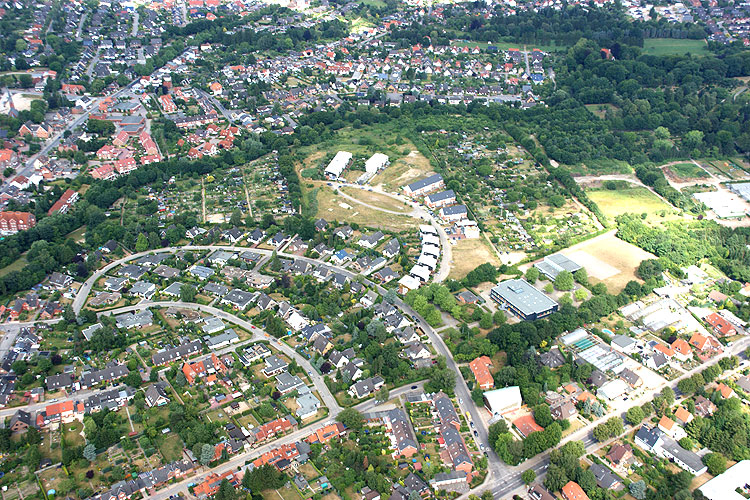Five months after the project meeting and conference in Hamburg where the participants had the opportunity to visit the Lübeck-Flintenbreite eco-settlement the Hamburg University of Technology has released the report which summarises and describes the household food waste collection and its decentralised treatment in this demonstration site.
DECISIVE investigates decentralised bio-waste management schemes with micro-scale anaerobic digestion as the technological core unit. It also aims at providing a decision support tool to compare bio-waste management scenarios. This study focuses on the collection of food waste as the core-substrate of DECISIVE with connection to the micro-scale anaerobic digestion. These issues are investigated in a case-study performed at the eco-settlement Lübeck-Flintenbreite, which is part of the City of Lübeck. Within the study, the locations are characterised, whereby Lubeck – Flintenbreite refers specifically to settlement structures and the City of Lubeck focuses on the current applied collection and treatment procedures for bio-waste including source-separated bio-waste from biobins and non-separated bio-waste from residual waste bins. A waste composition analysis was carried out for wastes from bio-waste bins and residual waste bins comparing waste qualities. A special focus was placed on food waste, which was distinguished into 10 different fractions. Furthermore, an inventory of the technical infrastructure from Lübeck-Flintenbreite was carried out. In Lübeck-Flintenbreite a complete micro-scale anaerobic digestion system is available. It was constructed in an earlier project, but is yet to be operated. Specifically, the interface between source-separated bio-waste collection and micro-scale anaerobic digestion was investigated: the available decentralised shredder was operated with various source-separated bio-waste samples. Finally, scenarios for the transition of Lübeck-Flintenbreite towards decentralised bio-waste management and the usability of the available micro-scale anaerobic digestion process units were evaluated.
The initial concept for Lübeck-Flintenbreite was to combine blackwater and source-separated bio-waste management at a decentralised level. It was intended to treat the blackwater, orginating from vacuum toilets, together with the household’s source-separated bio-waste on-site in a micro-scale anaerobic digestion unit. The innovative parts of blackwater collection are in operation, but the bio-waste is still conventionally collected. The micro-scale anaerobic digestion with all the pre-treatment parts is not in use.
The current source-separated bio-waste and residual waste collection from Lübeck-Flintenbreite is integrated in the entire city’s collection system and operated by the Waste Authority Lübeck (Entsorgungsbetriebe Lübeck, EBL). The waste composition analysis of source-separated bio-waste and residual waste samples collected by EBL revealed that most of the generated food waste is disposed with the residual waste, and that the biobin is used by citizens mainly for garden waste. The waste composition analysis performed in December 2017 included 32 waste fractions for source-separated bio-waste and residual waste, respectively. Considering all results from the waste composition analysis compared to the evaluated German literature, following key data for scenario calculations was defined: 1-5% macro-impurity content of source-separated bio-waste, and 60-90 kg of food waste per capita and year, which is currently contained in residual waste and in bio-waste. Furthermore, a long-term goal for 50% food waste avoidance of the currently collected food waste was assumed. Key findings from the analysis of the City of Lubeck samples regarding principal avoidability were the following: 40% of food waste from source-separated bio-waste was classified as „avoidable” while it was even 81% of the food waste from residual waste. The food waste content found in residual waste samples was 35% and 7% in source-separated bio-waste samples.
Generally, the results obtained from this study will contribute to a data base contained in the DECISIVE decision support tool. It is meant to support planning, design and assessment of bio-waste management networks in urban areas. The strategies applied for evaluation of the systems in Lübeck-Flintenbreite and City of Lubeck will aid in the assessment of future case-studies. The results acquired from this research are fundamental for the development of strategies for transitioning from current bio-waste management systems towards more efficient and innovative ones.
The detailed summary and the full study are available in our Library section.

